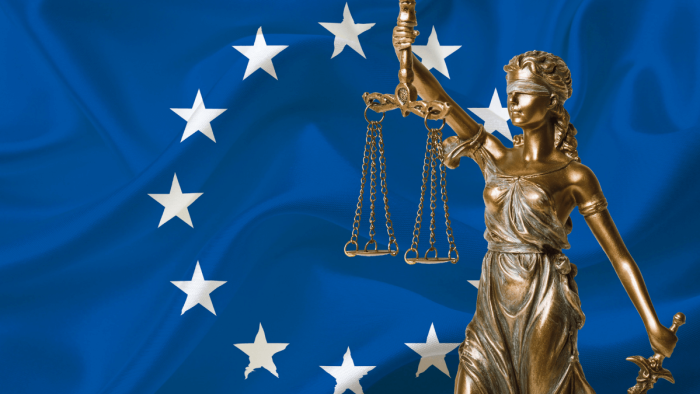
On this page
CJEU: New national tests are needed for extradition cases
Fair Trials has made an application to intervene in a European Arrest Warrant case which has attracted attention across Europe for its potential impact on criminal justice across the region.
The request to become an amicus curiae party in the case of The Minister for Justice and Equality and Artur Celmer will be decided by Justice Aileen Donnelly. The Celmer case set a new precedent last week, when an Irish court refused the extradition of a Polish national back to Poland under a European Arrest Warrant, and instead decided to refer the case to the Court of Justice of the European Union (CJEU) for further guidance on whether the extradition of Mr. Celmer would violate his fair trial rights. Referring to recent judicial reforms in Poland which have led to widespread criticism and concerns over the independence of the judiciary, Justice Donnelly said that the “rule of law in Poland has been systematically damaged”.
Fair Trials’ attempted intervention centres around the questions that the Irish court will put to the CJEU on the legal tests that should be applied to the case in deciding whether to extradite Mr. Celmer. The draft questions initially proposed by the Irish court refer to the existing precedents in European jurisprudence for refusing extradition:
The Aranyosi test- In Aranyosi and Căldăraru the CJEU ruled that a court should not – despite the EU principle of mutual trust – extradite a defendant to another country where the court finds there is ‘sufficient risk’ that the defendant would face detention in conditions that constitute inhuman or degrading treatment.
The ‘flagrant denial’ test- In Othman v United Kingdom, the European Court of Human Rights (ECtHR) ruled that the UK could not deport a defendant to Jordan where there was a real chance that he would face a trial that constituted a ‘flagrant denial of justice’. The flagrant denial in this case was based on a ‘real risk’ that evidence obtained by torture would be used against Othman at trial in Jordan.
Fair Trials has questioned whether in the Celmer case, either of these tests may actually be applicable. Rather, Fair Trials believes that this case offers a unique opportunity to ask the CJEU to develop a brand-new test for national courts to apply where the court believes that there are risks to the right to a fair trial as established in EU law, such as threats to the independence of the judiciary, in the receiving country.
Justice Aileen Donnelly has stated that she plans to decide by the end of the week both upon whether Fair Trials will be allowed to join as an amicus curiae on the case, as well as the final wording for the questions to be referred to the CJEU.
Fair Trials has previously raised concerns over the changes in Poland that have led to the current situation.
Read our application to become an amicus curiae party to the case
Read our intervention outlining the questions to be referred to the CJEU
UPDATE March, 23rd
On Friday 23rd March, Judge Donnelly decided not to admit Fair Trials as amicus curiae in the proceedings. Ralph Bunche, Regional Director for Europe at Fair Trials, said: “We are, of course, disappointed not be have been admitted as an amicus curiae in the case. But given the stage of the proceedings and the Judge Donnelly’s concern not to delay proceedings given that Mr. Celmer is currently in detention, we appreciate Judge Donnelly’s reasoning, not least because Fair Trials has long been advocating against the overuse of pre-trial detention in Europe. We are truly grateful to Judge Donnelly for giving our application serious consideration in such a short timeframe. More importantly, we would like to express our gratitude to Judge Donnelly for raising such important questions to the CJEU. Referrals to the CJEU from national courts on fundamental rights questions like this are critical to ensuring that the European Arrest Warrant system is developed in a manner that protects fundamental rights in Europe.”


